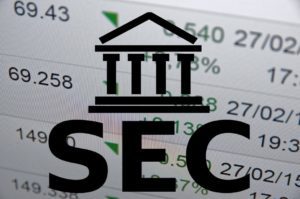 The Securities and Exchange Commission (SEC) announced the creation of two new offices—an Office of Crypto Assets (OCA) and an Office of Industrial Applications and Services (OIAS)—within its Division of Corporation Finance’s Disclosure Review Program (DRP). While the offices haven’t yet opened, it’s already worth understanding their significance and expected roles.
The Securities and Exchange Commission (SEC) announced the creation of two new offices—an Office of Crypto Assets (OCA) and an Office of Industrial Applications and Services (OIAS)—within its Division of Corporation Finance’s Disclosure Review Program (DRP). While the offices haven’t yet opened, it’s already worth understanding their significance and expected roles.
DPR is charged with reviewing company filings, to ensure that firms are in compliance with SEC rules relating to disclosure and accounting requirements. They analyze documents to determine if the disclosures for investors are complete and accurate, or if they are materially deficient in clarity or explanations. The scope of review varies, but DPR has at least some level of review for all reporting companies at least once every three years, while some companies receive more frequent reviews.
OIAS will focus on companies in the non-pharma, non-biotech, and non-medicinal product fields. This isn’t necessarily a signal of increased enforcement, but it’s more a recognition of the growth in these sectors. Therefore, OIAS will bring more specialized subject matter expertise than the existing staff can provide.
Creation of the new crypto office is also a reflection of cryptocurrency’s growth. But, unlike OIAS, the new crypto office is also a sign that the SEC is increasing enforcement over cryptocurrency firms. The creation of the new office came on the heels of a White House executive order directing regulators “to aggressively pursue investigations and enforcement actions against unlawful practices in the digital assets space.”
Disclosure of cryptocurrency investments must accurately identify the assets that are being marketed to investors, but what’s of particular concern to the SEC is the asset valuation. How is the company determining the investment’s worth? Is the valuation based on book value, cash flow, a ratio analysis, or a market capitalization formula? What is the valuation multiple used to compare this investment to other cryptocurrencies or traditional financial assets?
Deceiving investors on a cryptocurrency’s value is a violation of the Securities Act and SEC Rule 10b-5. For example, violations occur if the investment firm is manipulating its crypto asset valuation by inflating its cash flow, using a formula that misleads investors into thinking it has a higher value, or misrepresenting how the company conducts its crypto mining and maintenance.
If you’re working at a company deceiving investors, you should consider becoming an SEC whistleblower.
The new office is testimony that the SEC is specifically interested in cryptocurrency scams. And if your tip leads to a financial payment to the SEC in an amount of $1 million or more, you may be eligible for an award, while companies found liable under the act and SEC rules may be subject to both civil and criminal penalties.
We have years of experience representing SEC whistleblowers, coupled with an SEC Enforcement lawyer on our team and an in-depth understanding of how the SEC Whistleblower Program operates. We are here to assist whistleblowers attempt to maximize their opportunity to receive a financial bounty. For a free, confidential consultation, email us or call us today at (800) 975-4345.
 SEC Whistleblower Lawyer Blog
SEC Whistleblower Lawyer Blog

